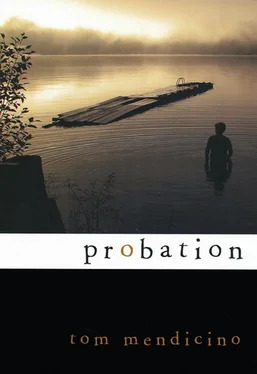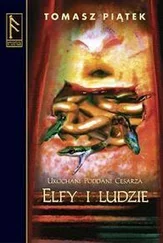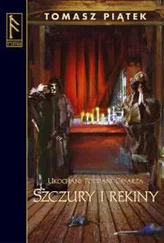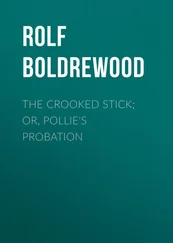“You’re right,” she says, stubbing out her cigarette. “I don’t understand, you asshole.”
But you’d understand even less if I followed you back to the kitchen and tried to explain that I don’t hate you. You’re being punished for all those things you know about me that I want to forget, for having a front-row seat to all the humiliations, usually self-inflicted, I endured. Sorry, Regina, I hate that little boy you loved and you’re collateral damage. You try to talk to me about your sad little son, thinking I’ll understand, maybe offer some insight or at least some friendly support. Why would you think I have any insight into that pathetic kid? Don’t you remember your wedding day, how you confronted me about my reprehensible behavior, not understanding how or why I could be so mean to Randall Jarvis? He’d gotten shamefully drunk, reeling from my cruel remark, intended to wound.
“Come on, he’s rich. He’s famous. He’s a big boy,” I said, defending myself.
“Yeah, but he remembers what it meant to be the little boy he was back then,” she said, the one and only time she went for the kill. “Obviously, you’ve forgotten.”
Not if you won’t let me, Regina. And you’re not getting another chance, I think, retreating to the sofa and my television, remote control in hand, ready to crank up the volume in the all-too-likely event my sister has some further afterthought she feels compelled to share.
Help!
“Gina!” I scream, jumping to my feet, forgetting until it’s too late the hole in my hip.
“What? What?” she shouts, panicking, running in from the kitchen and stopping dead in her tracks to gasp at the unexpected sight of the Fab Four cutting up on the Alpine slopes in their goofy cloaks and funny hats.
“Oh my God,” she says.
We’ve seen it a dozen times. A hundred. Maybe a thousand. No, a million!
“Oh, Paul,” she says, swooning like a little girl again.
I love cable. Thank God there’s plenty of beer and wine in the house. It’s a Beatles marathon. After Help!, A Hard Day’s Night.
“It’s the better movie.”
“It’s black and white,” she argues.
“So?”
“Why couldn’t they have made it in color?”
“Black and white is better. It’s more expressive.”
“No, it’s not.”
“Yes, it is. Color is too literal.”
“Oh just shut up. I love this song,” she says, still insisting, despite the visual evidence otherwise, it’s Paul, not John, singing lead vocals on “If I Fell.”
“I do too,” I say, not wanting to argue.
Suddenly it’s four in the morning and I’m up in the attic, tearing through boxes, not bothering to reseal them when I don’t find what I’m looking for. I won’t be deterred. I know they’re up here somewhere.
“Ta-dah!” I shout.
“Did you find them?”
“Yep.”
And, praise God, they aren’t warped after decades of hibernation in this sweatbox of an attic. Leave it to my mother to pack them so tightly, so expertly, that moisture and heat hasn’t destroyed them. I have a moment of drunken insight. This is what she preserved them for. Tonight.
My sister and I argue over which record to play first. Finally we compromise and drop a stack on the spindle.
“Oh, God, do you remember…”
As my mother would say, no pun intended, we sound like a broken record.
Do you remember this?
Do you remember that?
Do you remember him?
Do you remember her?
And so the night passes, nothing resolved, nothing settled. But for a few hours, we blast Rubber Soul and Revolver loud enough to wake the dead and stay pleasantly smashed and I am the ten-year-old she loved and she is eight and I can love her back and all the years of polite estrangement still lie in the future.
By noon the heat will be blistering. The county’s on crisis alert. The scorched earth is a fire hazard and Smokey the Bear has orders to arrest anyone tossing a lit butt to the ground. The Department of Public Works is rationing water and the drought guidelines recommend flushing only “when necessary.” I turn the dial to news radio. The death toll is nineteen and rising. Luxury imports speed by me in the passing lane, tinted windows protecting their pampered passengers from the intense sun, while some poor old lady suffocates in an airless room because she can’t afford a cheap electric fan. Robin Hood ought to loot the aisles of Kmart and Wal-Mart and bring relief to the needy and deserving.
The overnight low was a record ninety-four degrees. My sister has summoned her husband from Florida and they’ve moved to the best hotel in Charlotte: twenty-four-hour room service and fresh towels and bed linen feel more like necessities than extravagances under current conditions. Alone now in my mother’s house, I turned off the thermostat and let the Monument to Heat and Air bake all day in the sun. I couldn’t sleep, tossing and turning on my stripped bed. I’m exhausted and fight the urge to doze at the wheel. Exhaust fumes caress my face and carbon and sulfur char my nostrils and throat. My bare legs are branded with grill marks, seared by the vinyl upholstery. I could close the car windows and crank up the air, but the heat is a respite from interminable waiting with no end in sight. The vigil goes on. I don’t measure time in days and weeks, but by hot and cold.
I park the car and enter the deep freeze of the hospital. The frigid air creeps into my loose shorts. The cold keeps me awake. My phone is vibrating. I don’t recognize the number. Sabotaged! My counselor is calling from his cell. I tell him I just arrived at the hospital and can’t talk. Surprise, surprise! He’s at the hospital too, only three floors away. He insists that I meet him. Now.
“You did get my message, didn’t you?” he asks, bounding out of the elevator as if it’s a matter of some urgency.
“Yes. I did.”
Hello, Andy. It’s Matt McGinley. I’m sorry for the short notice but I need to reschedule Friday’s appointment. I know this is a difficult time for you, so please call me. Perhaps we can find some time before my flight on Thursday. I’m back late Saturday morning. I can do Saturday afternoon or evening. I can even try for Sunday. Call me.
“Why didn’t you call?” he asks.
“I forgot.”
He looks skeptical.
“Four times? I’ve tried you four times since Monday afternoon.”
“Seriously, Matt. I forgot. I just plain forgot.”
He tries to put his arm around my shoulder, but I push him away.
“Sorry, sorry,” I say. “I don’t need to start crying.”
“Nothing wrong with that.”
“Not now. Not here.”
“Here” is the harshly lit Critical Care Unit, a place designed for observation and expediency, not privacy. I ask why he’s chasing after me. He says he was in the hospital anyway. There’d been a little problem with one of his admissions to the psych unit. I thank him for taking the time to check on me, tell him he shouldn’t have bothered. He should go back to the psych ward, the kid’s problems seem more important.
“No. Not more important, just more emergent,” he says.
Little does he know.
“Why did you cancel?” I ask.
“I told you. I need to go out of town. It was unexpected.”
“Where are you going?”
“ Washington.”
“Why?”
He’s clearly uncomfortable being questioned.
“We can talk about that when I get back. If it’s necessary.”
“I think it’s necessary.”
“It may not be.”
“Is it an emergency?”
“No. It’s not an emergency.”
“Then why couldn’t you have planned ahead?” I’m surprised by how shrill I sound. “You know you’ve violated the cancellation policy, don’t you? Payment in full for cancellations with less than forty-eight hours’ notice. I’m enforcing it. It’s only fair. Here’s my price. You have to tell me why you’re going. Tell me what’s so-how did you say it?-important but not emergent. You cancelled too late. Now you have to pay.”
Читать дальше












